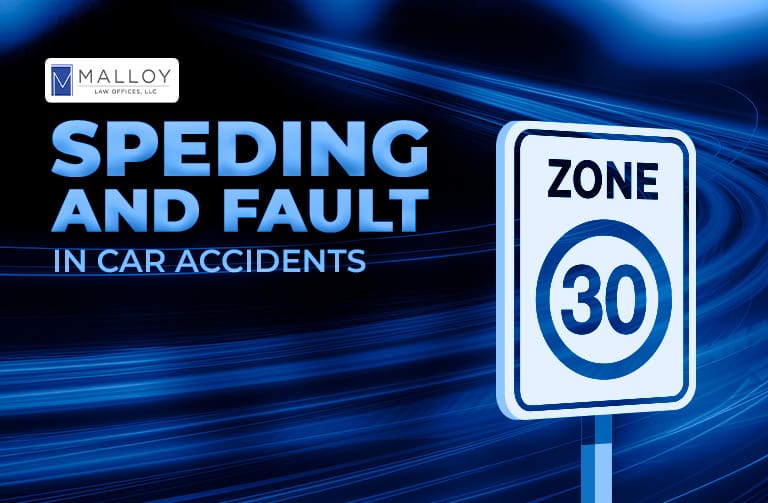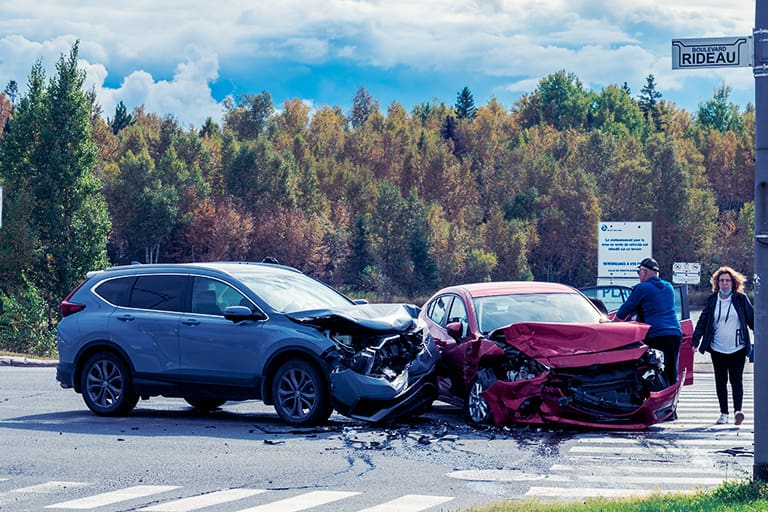Speeding and Fault in Car Accidents
As the leading personal injury firm in our region, Malloy Law Offices is all too familiar with the bizarre and tragic permutations a car accident can present. Car accidents, the negligent driving which causes them, and the lives they affect, are of the utmost concern to us. We represent thousands of car crash victims per year. Our reputation depends on winning the compensation our clients need to get their lives back on track. This means that we’re highly familiar with the circumstances that can complicate or derail a car accident case. One of these circumstances is speeding. Speed is always a risk multiplier for serious injury in a car accident. Even in circumstances where the other driver would ordinarily be at fault, speeding can turn a simple car accident case into something far more complicated. Today’s Malloy Law blog post will cover speeding and fault in car accidents.
Am I At Fault Automatically If I Was Speeding at the Time of My Accident?
Short answer: no. Though as you might expect, the closer you look, the more complicated the issue becomes.
A large part of the process by which we evaluate questions of speeding and fault has to do with the degree of the speeding offense involved. It’s often less dependent on content and more on context. An accident which occurs on a wide interstate highway while one driver is traveling at sixty miles per hour, five miles per hour in excess of the posted fifty-five mile per hour limit, is very different from an accident which occurs at the same sixty miles per hour speed on a residential street with a posted speed limit of twenty-five miles per hour.
In most of the United States, speeding at the time of an accident will not mark you out as the sole party at fault. You’ll likely be assessed a percentage of the blame based on the severity of your speeding infraction. However, our DMV region operates on an irregular doctrine. One which makes questions of fault far more consequential to the resolution of a personal injury case.
Contributory Negligence, Speeding and Fault
If an injured party in Maryland or Virginia is found to be at all at fault for their own injuries, they may be denied compensation under the legal concept of contributory negligence. Put another way, the injured party might be ineligible for any compensation at all if it is determined that they were somehow responsible for their own accident, even if it was just one percent.
A person may be judged to have contributed to their own accident in a variety of ways. Speeding is among the most prevalent. Although speeding may not always indicate contributory negligence on the part of the plaintiff, it will undoubtedly be considered.
What Will Be Considered When Assessing Contributory Negligence, Speeding and Fault?
- The Seriousness of your Speeding Infraction: You are more likely to be found liable for contributory negligence if you were speeding excessively than if you were only marginally over the speed limit.
- Road Conditions: When calculating contributory negligence, the state of the road, whether it was icy, wet, or otherwise, may be taken into consideration.
- The Speed Limit: If the speed limit was low, you may be less likely to be found contributorily negligent than if the speed limit was high.
- Speeding in a School Zone: Speeding in a school zone is more likely to result in a judgment of contributory negligence and is seen as a more serious offense than speeding in other places.
How Malloy Law Can Help
If you or a loved one has been involved in a car accident caused by someone else’s negligence, Malloy Law can help. Our experienced team of personal injury attorneys and dedicated support staff will evaluate your case free of charge and plot a course to maximum compensation. Don’t face the aftermath of your speeding accident alone, contact Malloy Law today and let’s win your case!




